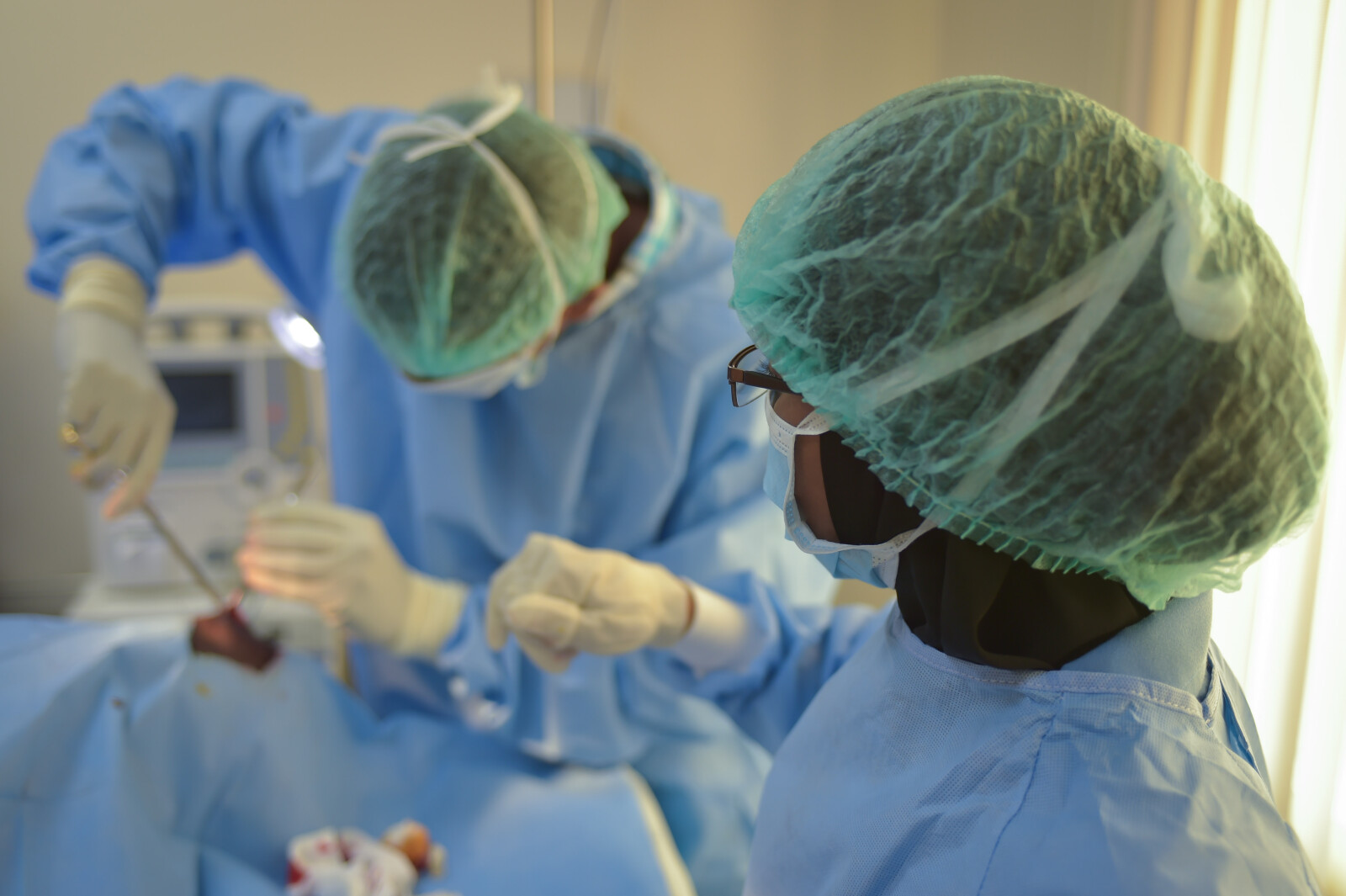Ethicon Physiomesh: Complications, Recalls & Phyisomesh Lawsuits
In the world of medicine, not all heroes wear capes; some unfortunately bring complications. This article scrutinizes Ethicon's Physiomesh, a surgical mesh linked with numerous adverse effects, leading to its eventual recall in 2016. It delves into the product's approval, the complications it caused, the ensuing lawsuits, and the broader implications for patient safety in the healthcare industry. Join us as we unravel the tangled web of the Physiomesh saga.

Key Takeaways
- Physiomesh is a coated surgical mesh used in hernia repairs.
- The mesh is made from polypropylene and is absorbed by the patient's body over time.
- Physiomesh was designed for laparoscopic surgery but did not always strengthen repairs and sometimes adhered to organs.
- Lawsuits involving Ethicon-branded Physiomesh are currently pending.
Understanding Ethicon Physiomesh
To develop a comprehensive understanding of Ethicon Physiomesh, it is crucial to delve into its composition, purpose, and the controversies surrounding it. Physiomesh, primarily composed of polypropylene, is a surgical mesh used in hernia repairs. Despite its intended design to prevent adhesions, numerous cases of complications have been reported. Understanding physiomesh complications, which include infections, hernia recurrence, and adhesion to organs, provides insight into the risks associated with its use. The magnitude of these complications led to Ethicon voluntarily recalling the product from the global market in 2016. Ethicon's responsibility in this matter is a subject of ongoing debate, especially in light of the pending lawsuits against the company by patients who suffered adverse effects following Physiomesh implantation.
The Function of Physiomesh in Medical Procedures
Physiomesh, utilized in thousands of medical procedures, serves a critical role in facilitating hernia repairs by providing support to weakened or damaged tissues. Surgical mesh alternatives, while available, often do not offer the same level of support and may result in a higher recurrence of hernias. However, the use of Physiomesh is not without its risks. The long term effects of Physiomesh use have been a subject of concern, with patients reporting complications such as infection, adhesion, and bowel obstruction. These issues have led to numerous recalls of the product and a surge in Physiomesh lawsuits. Despite its benefits in hernia repair, the potential risks associated with Physiomesh emphasize the need for continued research and development in this area.
Ethicon: The Manufacturer Behind Physiomesh
Delving into the background of Physiomesh, one must first turn their attention towards Ethicon, the manufacturing corporation behind its production. Established as part of the healthcare conglomerate Johnson & Johnson, Ethicon holds a significant stake in the medical device industry. Understanding Physiomesh manufacturing requires a look at Ethicon's advanced production techniques. The firm utilizes a multi-layer coating approach to produce Physiomesh, a method aimed at minimizing adhesion and inflammation post-surgery. However, the effectiveness of this technique has been questioned, leading to product recalls and lawsuits. Ethicon's quality control measures, while rigorous, have been under scrutiny due to reported complications. Despite this, Ethicon continues to stand as a major player in the healthcare sector, promising improved safety measures for its products.
The Approval and Utilization of Physiomesh
The U.S. Food and Drug Administration granted approval for Physiomesh in 2010, and since then, it has been widely used in hernia repair surgeries across the country. The Physiomesh approval process involved rigorous testing and evaluation to ensure safety and efficacy. Subsequent to its approval, physicians adopted Physiomesh usage for its perceived effectiveness in reducing post-operative complications. The mesh's unique design, intended to minimize adhesion and facilitate incorporation into the body, contributed to its widespread use. However, amid rising concerns regarding potential complications, the true effectiveness of Physiomesh has come under scrutiny. As a result, comprehensive reviews of clinical data and patient outcomes are ongoing to fully assess the balance between Physiomesh usage and effectiveness against potential risks.
Unpacking the Complications Linked to Physiomesh
Despite its initial approval and widespread use, Physiomesh has been linked to numerous complications, and these issues are now a focal point of intense medical and legal scrutiny. The potential complications associated with Physiomesh include infection, chronic pain, hernia recurrence, mesh shrinkage, and adhesion to internal organs. These complications often necessitate additional surgeries, increasing the surgical implications for patients. The product's failure to fully integrate into the body and its tendency to migrate or contract has also led to other serious conditions, such as bowel obstruction and perforation. These alarming complications have prompted recalls and spawned numerous lawsuits against Ethicon, the manufacturer of Physiomesh. The medical community is now more cautious about its use, considering the potential risks.
Detailed Look at Physiomesh Recalls
Often, the recalls of Physiomesh have been marked by significant controversy and confusion, but they provide critical insights into the product's safety and efficacy. As per the complications timeline, Physiomesh was voluntarily recalled by its manufacturer, Ethicon, in May 2016, due to higher than average revision surgeries and hernia recurrences. Patient testimonials following the recall have shed light on the severe pain, suffering, and complications experienced, further emphasizing the necessity of the recall. Despite the recall, many patients had already been implanted with the device, leading to a cascade of lawsuits against Ethicon. The recall and subsequent events have raised serious questions about the initial approval and post-market surveillance of such medical devices, underlining the need for more stringent controls.
The Role of FDA in Physiomesh Recalls
An integral part of any medical device recall, including the Physiomesh, is the role played by the U.S. Food and Drug Administration (FDA). The role of FDA oversight is crucial in ensuring that potential hazards are identified, and appropriate actions are taken. The FDA has the authority to mandate recalls, ensuring that unsafe products are removed from the market. This ability directly impacts patient safety, as it prevents further harm from defective devices. In the case of Physiomesh, the FDA had facilitated the communication between the manufacturer, Ethicon, and healthcare professionals, ensuring that the recall was efficiently executed. This incident underscores the FDA's vital role in the monitoring and regulation of medical devices, maintaining the balance between innovation and patient safety.
Physiomesh Lawsuits: A Historical Perspective
Over the years, thousands of Physiomesh lawsuits have been filed, and these legal actions provide a historical perspective on the product's safety, efficacy, and the extent of damage it has allegedly caused to patients. This historical context reveals a pattern of alleged injuries, including severe pain, infection, hernia recurrence, and the need for revision surgery. These lawsuits claim that Ethicon, the manufacturer, was aware of the potential long term effects but failed to adequately warn the medical community and patients. The legal actions further allege that Ethicon's decisions led to irreversible harm in many patients. These lawsuits, and their subsequent rulings and settlements, form an integral part of the Physiomesh narrative and continue to influence ongoing discussions about its safety and utility.
Ethicon’s Response to Physiomesh Lawsuits
In response to the numerous Physiomesh lawsuits, Ethicon has taken several steps, but their actions have been met with varying degrees of approval from the affected parties and the medical community. Central to Ethicon's defense strategy is their reliance on the product's FDA approval and assertions that surgical technique and patient selection, not the product, are to blame for complications. This stance, however, has sparked further controversy and intensified patient advocacy in Physiomesh lawsuits. Accusers argue that Ethicon's defense fails to recognize the inherent design flaws of Physiomesh. They contend that Ethicon's response is insufficient, calling for a more comprehensive investigation into the product's safety and for more proactive actions to address patient suffering caused by Physiomesh complications.
Key Factors in Physiomesh Lawsuit Claims
Three primary factors tend to dominate most Physiomesh lawsuit claims: the allegations of product defect, failure to warn, and negligence on the part of Ethicon. These factors influencing Physiomesh lawsuit claims are pivotal in determining the success of the case. Allegations of product defect often hinge on proving that the Physiomesh was inherently flawed, leading to complications in patients post-surgery. The charge of failure to warn pertains to Ethicon's alleged inadequacy in providing sufficient information about potential risks of the product. Lastly, claims of negligence assert that Ethicon did not exercise the necessary care in manufacturing, testing, and marketing Physiomesh. Each of these factors carries significant legal implications, often resulting in substantial financial compensations.
Case Studies of Physiomesh Lawsuits
Several case studies of Physiomesh lawsuits highlight the significant implications for patients and the legal complexities involved, providing a more comprehensive understanding of the subject. These cases illustrate the long-term effects on patients, such as chronic pain and repeat surgeries. One notable case resulted in a settlement for an undisclosed amount, thereby opening potential discussion ideas about settlement outcomes. The plaintiff had undergone six additional surgeries due to complications from the Physiomesh implant. This case and others like it, emphasize the importance of addressing the issue of Physiomesh complications legally. The myriad of lawsuits filed against Ethicon, the manufacturer of Physiomesh, underscore the gravity of the situation and the potential for more cases to follow.
The Impact of Physiomesh Complications on Patients
While some patients may experience relatively minor complications from Physiomesh implants, others have suffered severe, life-altering consequences, illustrating the profound impact this medical device can have on individuals' health and quality of life. These long term effects can include chronic pain, organ damage, and subsequent surgeries, disrupting patients' daily lives and causing significant distress. As a result, patient advocacy groups have emerged, demanding accountability and pushing for changes in the medical device industry. They argue that patients should be fully informed about potential risks and complications associated with Physiomesh. In addition, they insist on rigorous testing and monitoring of such devices to prevent future suffering and enhance patient safety.
Role of Legal Assistance in Physiomesh Lawsuits
Navigating the complex legal landscape of Physiomesh lawsuits can be challenging, and obtaining qualified legal assistance often plays a crucial role in achieving a successful outcome. The importance of legal representation cannot be overstated in these matters. Skilled attorneys can decipher the intricacies of the law, understand medical jargon, negotiate with insurance companies, and represent victims in court, if necessary. They can gather the necessary medical records, expert testimonials, and evidence to substantiate the claim of Physiomesh complications. Legal representation can also help victims obtain appropriate compensation for physiomesh complications, including medical costs, lost wages, and pain and suffering. Thus, securing experienced legal help is key to navigating this challenging process.
What to Consider When Pursuing a Physiomesh Lawsuit
In order to successfully embark on a Physiomesh lawsuit, one must consider at least three key factors: the strength of the medical evidence, the potential for financial compensation, and the qualifications and experience of the legal representation chosen. The strength of the medical evidence is vital, as it substantiates the claim of harm caused by Physiomesh. The potential for financial compensation should also be evaluated; this includes damages for pain, suffering, medical expenses, and lost income. Lastly, the qualifications and experience of legal representation are critical. A law firm experienced in handling Physiomesh lawsuits can guide through the complexities of the legal process, ensuring that all necessary factors are considered for a successful claim.
The Future Outlook on Physiomesh and Its Legal Implications
As we look ahead and consider the future implications of Physiomesh, it's imperative to bear in mind the potential ongoing legal ramifications, and the likelihood of further lawsuits being leveled against Ethicon. The outlook is one of uncertainty, as more patients report post-operative complications. The implications of this trend suggest that Ethicon may face an increasing number of lawsuits, with settlements potentially reaching into millions. As legal proceedings progress, it will be crucial for patients to keep informed about their rights and options. Ultimately, the future of Physiomesh is closely tied to these legal outcomes, and the medical community will be watching closely for any developments that could impact patient safety and corporate accountability.
Frequently Asked Questions
What Are the Alternatives to Using Physiomesh in Hernia Repairs?”
Alternatives to using Physiomesh in hernia repairs include using other mesh materials that have demonstrated safety in clinical trials. These may be made of biological material or other synthetic options. In some cases, non-mesh options might be suitable, such as sutures or a technique known as herniorrhaphy. It is crucial to discuss these options with a healthcare professional to determine the most appropriate solution based on individual circumstances.
How Does the Cost of Physiomesh Compare to Other Surgical Meshes?”
The cost of Physiomesh can vary, influenced by factors such as the size and complexity of the hernia, the surgical procedure used, and the healthcare provider's pricing structures. When examining a cost-effectiveness analysis, it's important to consider not only the initial cost of the mesh but also potential long-term costs related to complications or revisions. As with any medical device, it is crucial to consider both the financial and health impacts when evaluating the overall cost.
What Is the Patient Recovery Time After a Surgery Using Physiomesh?”
The patient recovery time after a surgery using Physiomesh varies depending on individual health conditions and the complexity of the surgery. The Physiomesh removal process, if required, could potentially extend recovery times. Post-operative care techniques, such as wound care, pain management, and physical therapy, are crucial in influencing the duration of recovery. It is essential for patients to follow their surgeon's post-operative instructions to facilitate optimal healing and recovery.
Are There Any Specific Patient Conditions That Make Using Physiomesh More Risky?”
Certain patient conditions may increase the risks associated with Physiomesh use. Like navigating a ship through a storm, managing surgical risks with Physiomesh can be challenging for patients with specific conditions. Particularly, those with allergies to the materials in Physiomesh may experience severe reactions. Additionally, individuals with genetic predispositions affecting tissue repair or immune response may face enhanced complications. These risks underline the importance of thorough preoperative assessments and personalized surgical planning.
Have Any International Health Organizations Issued Warnings or Recalls for Physiomesh?”
Several international health organizations have issued warnings and recalls for Physiomesh. The regulatory oversight of Physiomesh has identified complications leading to product recalls. For instance, Health Canada issued a recall in 2016 due to higher hernia recurrence and reoperation rates. Similarly, the Therapeutic Goods Administration in Australia issued a hazard alert. These actions followed the voluntary global withdrawal of the product by Ethicon, indicating serious concerns about the safety of Physiomesh.
Conclusion
In light of the alarming complications and subsequent lawsuits, the Ethicon Physiomesh saga underscores the crucial need for rigorous product testing, manufacturer accountability, and robust legal protection for patients. This incident serves as a stark reminder of the potential repercussions when medical devices fail, highlighting the imperativeness of transparency, safety, and justice in the healthcare sector. The future will inevitably bring improved regulations, but for those affected, the journey to justice continues.

This post has been generated by AI and was not reviewed by editors. This is Not legal advice. Please consult with an attorney.




